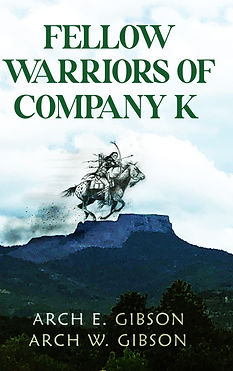Right Thing to Do. . .
- Arch Gibson

- Aug 7, 2021
- 3 min read
Congratulations to Secretary of the Interior Deb Haaland for taking the long overdue step to correct injustices of the Indian Boarding School policies which claimed thousands of young Native American lives during more than a century of abuses, forcible removal from their families, and stripping them of their language and culture.

The right step? Secretary Haaland is a member of the New Mexico Laguna Pueblo and former Congresswoman from that district. She was appointed by President Biden to lead the Interior Department earlier this year. She is no stranger to the issue of boarding school horrors, but finally, under her leadership, the federal government will investigate its own history of the boarding school abuses, some of which led to young Indian deaths and burial in unmarked graves on the fringes of school grounds.
Secretary Haaland in June announced the nationwide investigation into the boarding schools that forcibly stripped students of their culture and languages to assimilate them into white society. Haaland, the first Native American to serve as a Cabinet secretary, said the schools' “forced assimilation practices” stripped away the children’s clothing, their language and their culture. She said the government will locate the schools and burial sites and identify the names and tribal affiliations of the children. There were more than 240 Indian boarding schools in 40 states around the country. More than 100,000 children were herded through the schools which were operated by harsh militant discipline and painful punishment.
The national investigation focuses on the Indian boarding schools that used tactics to strip student identities to "kill the Indian to save the man," according to former school founders.
Secretary of the Interior Deb Haaland first announced the Federal Indian Boarding School Initiative in a June 22 address to the National Congress of American Indians (NCAI). It followed the discovery of 215 children's remains at a school site in British Columbia. Officials estimate there could be thousands more unmarked graves on or near boarding school grounds.
I grew up in Kansas a couple of miles north of the Chilocco Indian School in northern Oklahoma. I knew lots of Chilocco Indians in addition to those native to Kansas and Oklahoma. The Chilocco boys were normally quiet, reserved, polite. They worked hard when they had jobs on the area farms. One of the young Chilocco men dragged my uncle from a burning oil tank battery that exploded when he was gauging it. Their truck was burning so he ran a couple of miles to their farm neighbors to summon help. That kind of bravery seemed common among these young warriors of the time. I never heard him complain about the school and he was like a member of the family, loved and appreciated by all.
How long the various forms of boarding school abuses actually lasted and the cause of death of those in unmarked graves remains to be discovered. Numerous horror stories have reached the public over the last half century and beyond. Human remains will be returned to families as part of the investigation. Hopefully, family burial and peaceful honorings will finally bring closure to the families.
Most students I knew had little to say about their school other than they had made good friends there and it was tough to go a long time without seeing family. But they all seemed to have learned the principles of "I will" and "I can". They would say, each in their own way, "I will be with my family again when I get out. I can get a job. I can make a living."
The ordeal and hatred of White society was fostered by the Indian boarding schools as much as any of the nation's programs that shoved Native Americans off their tribal lands, forced them onto reservations and starved them. Still, some Native Americans are thankful for the education, the trades and friends. Secretary of Interior Haaland has a job sorting out those unmarked graves.

The ordeal of buffalo wars, forced removal to reservations, deaths from epidemics, and the battle to keep children and grandchildren from being seized and forced into Indian boarding schools is
traced in my forthcoming historical novel, "Wasape - Life of a Comanche Warrior." The fifth book in the popular Bear Kotah series, look for it later this month on Amazon.com.






Comments